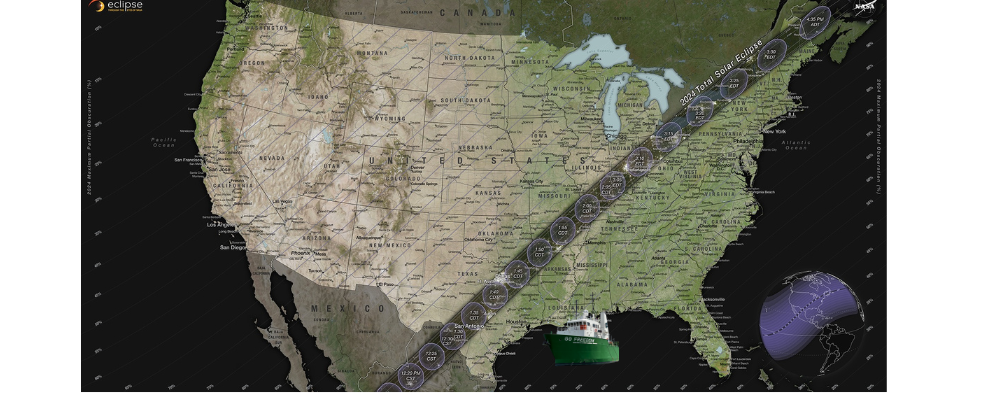On April 10, 2023, the Federal Communications Commission (FCC) officially finalized the establishment of a new Space Bureau and Office of International Affairs, the offices of which are expected to better support United States leadership in the emerging space economy, promote long-term technical capacity within the FCC to address non-federal satellite programs and policies, and improve coordination with other agencies on issues related to space.
As part of the restructuring, the FCC will be eliminating its current International Bureau and incorporating that team into the aforementioned new Bureau and Office.
To review the FCC’s re-organization plan that will now go into motion, click here.
The FCC’s Space Bureau will handle policy and licensing matters related to satellite communications and other in-space activities under the Commission’s jurisdiction, while the new Office of International Affairs will handle issues involving foreign and international regulatory authorities, as well as international telecommunications and submarine cable licensing.
“The satellite industry is growing at a record pace, but here on the ground, our regulatory frameworks for licensing have not kept up. We’re working to change that. Today, we are moving forward with our plan to prepare for what comes next,” said FCC Chairwoman Jessica Rosenworcel. “The new Space Bureau at the FCC will ensure that the agency’s resources are appropriately aligned to fulfill its statutory obligations, improve its coordination across the federal government, and support the 21st century satellite industry.”
Guice Offshore, one of the nation’s most respected providers of mini supply vessels for specialty markets, is experienced in delivering offshore maritime transportation services and facilitating offshore operations for the space, aerospace and subsea industries.
The FCC’s action is the latest initiative in its Space Innovation agenda, which will help speed up the regulatory review processes, increase the size of the FCC’s satellite division by 38 percent, create new opportunities for competition in the delivery of satellite broadband services, and modernize spectrum policy to better meet the needs of the next generation’s Space Age. As the agency promotes Space Innovation, it also has taken action to advance space safety and responsibility, including by adopting new rules for deorbiting satellites to address orbital debris risks.
“Our country’s economic success today and in the future relies on space-based connections,” said FCC Chairwoman Rosenworcel. “Whether it’s bringing broadband to hard-to-connect rural communities, closing mobile dead zones, or linking freedom-seeking people across the globe, satellite connectivity is fundamental to improving our quality of life and maintaining our economic success. That is why the FCC has made important structural changes to meet the needs of space innovation.”
Once the re-organization is complete, the agency’s International Bureau will become two separate, cooperative units:
- The Space Bureau (SB) will promote a competitive and innovative global communications marketplace by leading policy and licensing matters related to satellite and space-based communications and activities. Among its responsibilities, the Bureau will lead complex policy analysis and rulemakings; authorize satellite and earth station systems used for space-based services; streamline regulatory processes to provide maximum flexibility for operators to meet customer needs; and foster the efficient use of scarce spectrum and orbital resources. The Space Bureau will also serve as the FCC’s focal point for coordination with other U.S. government agencies on matters of space policy and governance, and collaborate with the Office of International Affairs for consultations with other countries, international and multilateral organizations, and foreign government officials that involve satellite and space policy matters.
- The Office of International Affairs (OIA) will be responsible for the FCC’s engagement of foreign and international regulatory authorities, including multilateral and regional organizations. The OIA will also facilitate through rulemaking and licensing the FCC’s development of policies regarding international telecommunications facilities and services as well as submarine cables, and advise the FCC on foreign ownership issues. In undertaking these functions, the OIA will implement FCC policies to facilitate competition and foreign investment in U.S. international telecommunications markets while ensuring, in consultation with relevant federal partners, that national security, law enforcement, foreign policy, and trade policy concerns are addressed. The OIA also will be responsible for intergovernmental leadership, negotiation, and international and inter-agency representational functions. The OIA will oversee and coordinate the FCC’s global participation in international and multilateral conferences, regional organizations, cross-border negotiations and international standard setting efforts. The OIA will also oversee bilateral meetings with other countries and foreign government officials.
Meet the New FCC Space Bureau and International Affairs Leaders; Watch the Space Bureau Kickoff Replay
A kickoff event to introduce the two new departments took place this week at the FCC headquarters in Washington, D.C. To watch a replay of the presentations, click here.
At the event, FCC Chairwoman Rosenworcel thanked the outstanding public servants who will staff these reorganized offices and announced key leadership appointments:
- Julie Kearney as Chief of the Space Bureau
- Ethan Lucarelli as Chief of the Office of International Affairs
- Ronald Repasi as Chief of the Office of Engineering and Technology
- Joel Taubenblatt as Chief of the Wireless Telecommunications Bureau
“The launch of these two fundamentally important Commission departments will succeed because of the FCC’s outstanding staff,” said Chairwoman Rosenworcel. “These hard-working, talented professionals interface with our international counterparts, modernize our satellite and orbital debris rules, review license requests for undersea cables upon which international interconnectivity relies, and much more. I thank them for their service and thank all those across the agency that worked to make this reorganization a reality.”
As of the April 10, 2023 publication in the Federal Register, the Office of International Affairs and the Space Bureau became official. With this transition, the International Bureau ceases to exist and becomes these two new offices.
Julie Kearney, the first Chief of the FCC’s new Space Bureau, joined the Commission in February as Senior Counsel to help lead this transition. Prior to her FCC work, she worked in the private sector for communications companies including Twilio, Loon (Alphabet), National Public Radio, MCI, the Consumer Technology Association, and in private legal practice. Julie earned her law degree from Catholic University’s Columbus School of Law and a bachelor’s degree from Mount Holyoke College.
Ethan Lucarelli, the first Chief of the Office of International Affairs, has most recently served as Legal Advisor to Chairwoman Rosenworcel on wireless and international policy issues. He also advised the Chairwoman on public safety and served as an advisor in the FCC’s Wireless Telecommunications Bureau. Prior to working for the FCC, he worked for Inmarsat, Wiley Rein LLP, and continues to lecture at the George Washington University Law School. Ethan earned his law degree from George Washington University Law School and a bachelor’s degree from the University of Illinois.
Joel Taubenblatt is now Chief of the Wireless Telecommunications Bureau after serving in an acting capacity in that role in recent years. Before that, he served as Deputy Bureau Chief, Chief of the Competition and Infrastructure Policy Division, and Chief of the Broadband Division. He joined the FCC in 1996 as an attorney in the Common Carrier Bureau, and he is a recipient of the FCC’s Gold Medal Award for Distinguished Career Service. Joel earned his law degree from Duke University School of Law and bachelor’s degrees from Wharton School of Finance and the University of Pennsylvania.
Ronald Repasi is now Chief of the Office of Engineering and Technology after serving in an acting capacity in that role in recent years. He joined the office in 2003 and served as Deputy Chief since 2007. He has also worked in the FCC’s then-International Bureau and as the agency’s liaison to the Inter-department Radio Advisory Committee. Ron earned his bachelor’s degree in Electrical Engineering from The George Washington University School of Engineering and Applied Science.



